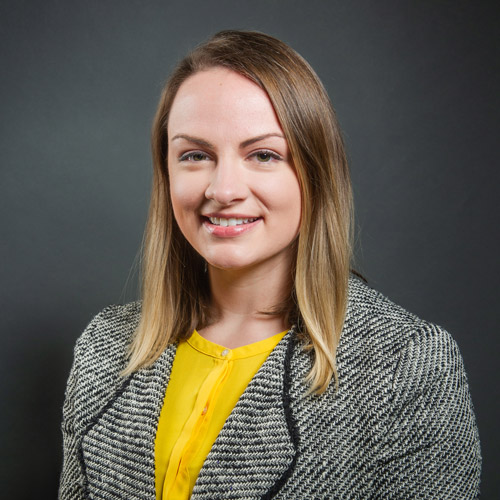Alison Gammie Wants to Help BU’s Postdocs and Junior Faculty Map Out Their Career Paths

Alison Gammie, a National Institute of General Medical Sciences director, is a molecular biologist and longtime STEM diversity advocate. Photo courtesy of the National Institutes of Health
Alison Gammie Wants to Help BU’s Postdocs and Junior Faculty Map Out Their Career Paths
Gammie, a National Institute of General Medical Sciences director, visits BU to talk about workforce development, career planning, and achieving diversity in research
Postdoctoral scientists and junior faculty researchers who dream of securing a tenure-track position know firsthand how much more competitive the academic environment has become in recent years. Since 2000, the number of people in the United States who hold master’s and doctoral degrees have both doubled, forcing many scientists to get creative in their search for job opportunities. This issue has not gone unnoticed by leaders at the highest levels of federally funded research, including the National Institutes of Health (NIH).
At the NIH National Institute of General Medical Sciences (NIGMS), molecular biologist and longtime STEM diversity advocate Alison Gammie is leading efforts to increase training, workforce development, and diversity in the biomedical sciences. She’s visiting the Boston University campus on Tuesday, February 11, to meet with research leadership and speak directly with postdocs and junior faculty during an open talk at One Silber Way. She hopes that people who attend the talk will leave the session with a stronger understanding of NIGMS training activities and how they can better engage with the agency.
Ahead of her visit to campus, The Brink reached out to pick Gammie’s brain on the how she and her NIH colleagues are working to bolster the biomedical workforce across the country.
Q&A
With Alison Gammie
The Brink: How is your team at NIGMS helping to address the challenges that PhD researchers are facing, especially as the number of academic, tenure-track job opportunities seems to be shrinking?
Gammie: The number of available tenure-track positions is not shrinking, but the pool of PhD scientists is increasing, so it may feel like it is shrinking. We are supporting PhD scientists in their careers by modernizing graduate education to take advantage of the latest educational methods, providing trainees with the knowledge and skills to transition into the breadth of careers in the biomedical research workforce, encouraging mentor training to enhance the training experience, creating more efficient and sustainable funding mechanisms for investigators at different stages of their careers, and enhancing diversity in the workforce and in the institutions, geographic regions, scientific topics, and approaches we support.
The Brink: Are there any emerging fields or research trends that you anticipate will create new employment opportunities for researchers?
Gammie: The demand for biomedical scientists is expanding beyond academia. Many graduate trainees pursue careers in industry, business, education, communication, science policy, government, law, or other fields. To ensure they are equipped to play important roles in these professions, we aim to shift the focus of NIGMS training programs to place more emphasis on broad-based skills that facilitate success in a range of occupations.
The Brink: What do those broad-based skills look like?
Gammie: Broadly transferable skills include analytical thinking, data analysis, clear writing, oral presentation skills, project management, the ability to work effectively in diverse teams, and character traits such as creativity, curiosity, and resilience.
The Brink: How do you think the research workforce in the United States will have changed 10 years from now?
Gammie: It is my hope that the research workforce will better reflect the diversity of the country as a whole. To that end, NIGMS supports a broad collection of training and capacity-building programs designed to develop talented people from underrepresented populations. These programs provide many types of support, training, and mentoring for students at multiple career stages. The programs operate at a variety of educational institutions across the country, including research-intensive universities, community colleges, undergraduate institutions, minority-serving institutions, and medical schools.

Comments & Discussion
Boston University moderates comments to facilitate an informed, substantive, civil conversation. Abusive, profane, self-promotional, misleading, incoherent or off-topic comments will be rejected. Moderators are staffed during regular business hours (EST) and can only accept comments written in English. Statistics or facts must include a citation or a link to the citation.